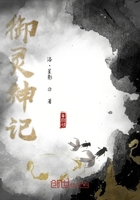"Cadet Smith's career for the three years of his service was indeed a most unhappy one, but whether that unhappiness arose fromTHE INFIRMITIES OF TEMPERor from the persistent persecutions of his comrades cannot be authoritatively said. One officer attributed much of the pugnacity which Smith exhibited early in his course to the injudicious letters sent him by his friends. In some of these he was advised to 'fight for the honor of his race,' and others urged him to brook no insult at the hands of the white cadets. The menial duties which the 'plebes' are called upon to do in their first summer encampment were looked upon by Smith as personal insults thrust upon him, althought his comrades made no complaint. Then the social ostracism to a lad of his sensitive nature was almost unbearable, and an occasional outbreak is not to be wondered at.
"Before he had been in the Academy a week he wrote to a friend complaining of the treatment he received from his fellows, and this letter being published intensified the hostility of the other cadets. Soon after this he had a fight with Cadet Wilson and cut his face with a dipper.
Then followed the breach of discipline on drill, the court-martial and sentence, and finally the Congressional investigation, which did not effect any good. Smith says that frequently on squad drill he was detached from the squad by the cadet corporal, and told that he was not to stand side by side with white men.
"WEST POINT, June 19."
THE COLORED CADET.
HIS TRIALS AND PERSECUTIONS--THREE YEARS OF ABUSE--SETTLED AT LAST--"ELI PERKINS" TELLS THE STORY.
To the Editor of the Daily Graphic:
About the 20th of May, 1870, I saw the colored Cadet, James W. Smith land at the West Point Dock. He was appointed by a personal friend of mine, Judge Hoge, Member of Congress from Columbia, South Carolina.
The mulatto boy was about five feet eight inches high, with olive complexion and freckles. Being hungry he tipped his hat to a cadet as he jumped from the ferry -boat and asked him the way to the hotel.
"'Over there, boy,' replied the cadet, pointing to the Rose Hotel owned by the government.
"On arriving there the colored boy laid down his carpet-bag, registered his name, and asked for something to eat.
"'What! A meal of victuals for a nigger?' asked the clerk.
"'Yes, Sir, I'm hungry and I should like to buy something to eat.'
"'Well, you'll have to be hungry a good while if you wait to get something to eat here,' and the clerk of the government hotel pushed the colored boy's carpet -bag off upon the floor.
"Jimmy Smith's father, who fought with General Sherman, and came back to become an alderman in Columbia, had told the boy that when he got to West Point among soldiers he would be treated justly, and you can imagine how the hungry boy felt when he trudged back over the hot campus to see Colonel Black and General Schriver, who was then Superintendent of the Academy.
"The black boy came and stood before the commandant and handed him his appointment papers and asked him to read them. Colonel Black, Colonel Boynton, and other officers looked around inquiringly. Then they got up to take a good look at, the first colored cadet. The colonel, red in the face, waved the boy away with his hand, and, one by one, the officers departed, speechless with amazement.
"In a few moments the news spread through the Academy.
The white cadets seemed paralyzed.
"Several cadets threatened to resign, some advocated maiming him for life, and a Democratic 'pleb' from Illinois exclaimed, 'I'd rather die than drill with the black devil.' But wiser counsels prevailed, and the cadets consented to tolerate Jimmy Smith and not drown or kill him for four weeks, when it was thought the examiners would 'bilge' him.
"On the 16th of June, 1870, I saw Jimmy Smith again at West Point and wrote out my experiences. He was the victim of great annoyance.
"At these insults the colored cadet showed a suppressed emotion. He could not break the ranks to chastise his assaulter. Then if he had fought with every cadet who called him a '--black-hearted nigger,' he would have fought with the whole Academy. Not the professors, for they have been as truly gentlemen as they are good officers. If they had feelings against the colored cadet they suppressed them. I say now that the indignities heaped upon Jimmy Smith would have been unbearable to any white boy of spirit. Hundreds of times a day he was publicly called names so mean that I dare not write them.
"Once I met Jimmy Smith after drill. He bore the insulting remarks like a Christian.
"'I expected it,' he said; 'but it was not so at the Hartford High School. There I had the second honors of my class.' Then he showed me a catalogue of the Hartford High School, and there was the name of James W. Smith as he graduated with the next highest honor.
"On that occasion I asked Jimmy who his father was.
"'His name is Israel Smith. He used to belong to Sandres Guignard, of Columbia.'
"'Then he was a slave?'
"'Yes, but when Sherman's army freed him he became a Union soldier.'
"'And your mother?'
"'She is Catherine Smith, born free.' Here Jimmy showed his mother's photograph. She looked like a mulatto woman, with straight hair and regular features. She had a serious, Miss-Siddons-looking face.
"'How did you come to "the Point?"' I asked.
"'Well, Mr. David Clark, of Hartford, promised to educate me, and he got Congressman Hoge to appoint me.'
"'How came Mr. Clark to become interested in you?'
"'Well, a very kind white lady--Miss Loomis--came to Columbia to teach the freedmen. I went to school to her and studied so hard and learned so fast that she told Mr. Clark about me. My father is able to support me, but Mr. Clark is a great philanthropist and he has taken a liking to me and he is going to stand by me.'
"'What does Mr. Clark say when you write about how the cadets treat you?'
"The colored boy handed me this letter from his benefactor:
"'HARTFORD, June 7, 1870.
"'DEAR JEMMY: Yours, 1st inst., is at hand and noted. Iherewith inclose stamps.














